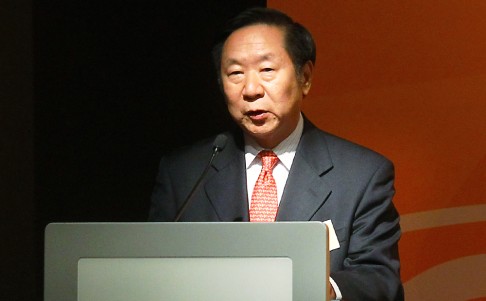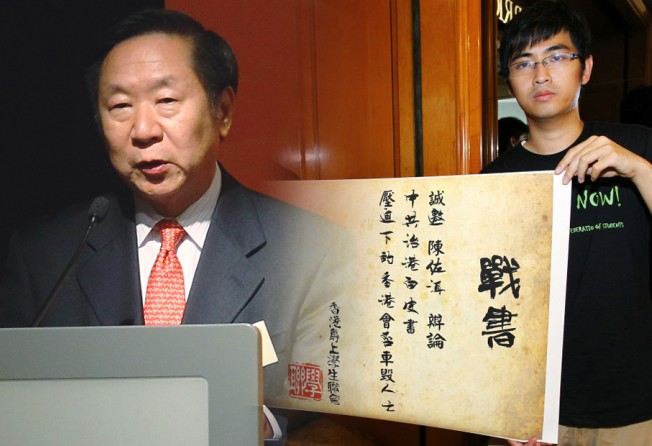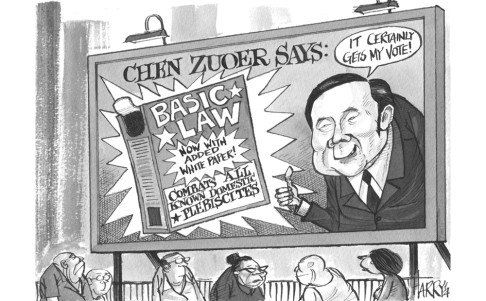
China's sovereignty takes precedence over Hong Kong, ex-official Chen Zuoer says

The sovereignty and security of the nation take precedence over maintaining Hong Kong's prosperity, a former top mainland official in charge of the city's affairs said.
Chen Zuoer, a former deputy director of the State Council's Hong Kong and Macau Affairs Office, also said Hongkongers had failed to shake off their "mentality as colonial subjects" 17 years after the handover.
Hongkongers had not yet come to terms with the fact that they are part of "one country", Chen added as he laid out the central government's priorities in an exclusive interview with the South China Morning Post.
He echoed the conclusions of Beijing's controversial white paper on Hong Kong affairs, insisting "one country" and "two systems" did not have equal weight.
Chen pointed to the report delivered to the Communist Party's 18th national congress in 2012, which stated that the underlying goal of Beijing's policies towards Hong Kong and Macau was to "uphold China's sovereignty, security and development interests". The report also mentioned ensuring the long-term stability and prosperity of the special administrative regions but, Chen said, not with equal importance.
"Upholding the country's sovereignty and security is not on an equal footing with maintaining Hong Kong's prosperity. My understanding is that upholding national sovereignty and security comes before maintaining the prosperity of the special administrative region," he said.
Chen was in town to address a seminar hosted by the Chinese Association of Hong Kong and Macau Studies, the recently established think tank of which he is chairman.
At the seminar on Friday, he defended the white paper, which had come under fire from pan-democrats for its insistence that the central government had "comprehensive jurisdiction" over Hong Kong.
Chen said some Hongkongers had not been fully prepared for the handover, and were "confused and lopsided" in their understanding of the "one country, two systems" principle.
Chen, who has been involved in Hong Kong affairs for more than 25 years, said some Hongkongers did not identify with the nation. "Resumption of territorial sovereignty was done in a second when the clock struck midnight on July 1, 1997. But can reunification of Hongkongers' hearts with the motherland be completed in the blink of an eye? It takes a long time," Chen said.
"The significant turn in Hong Kong's history involves adaptation in people's value system and outlook on life. I think the decolonisation process - Hongkongers shaking off their mentality as colonial subjects - has not yet been completed."
The Chinese Association of Hong Kong and Macau Studies was formed in December, two days after Hong Kong's government began a public consultation on electoral reform that is likely to pave the way for the election of the chief executive by universal suffrage in 2017. The association said the timing was a coincidence.
Chen's visit came as hundreds of thousands of Hongkongers voted in Occupy Central's unofficial referendum on the 2017 poll, an exercise the Hong Kong and Macau Affairs Office said was illegal.
But Chen, who two years ago proclaimed himself "heartbroken" at seeing Hong Kong protesters waving the British colonial flag, said Beijing was not tightening its grip because of sporadic examples of pro-independence fervour or colonial nostalgia.
"If that's what protesters think," he said, "they certainly underestimate the central government's generosity of mind and are nothing more than self-promoters."
